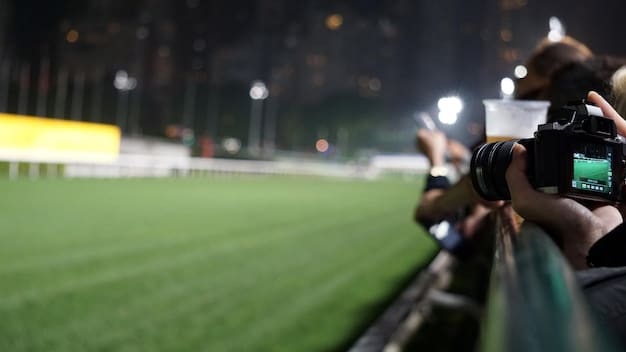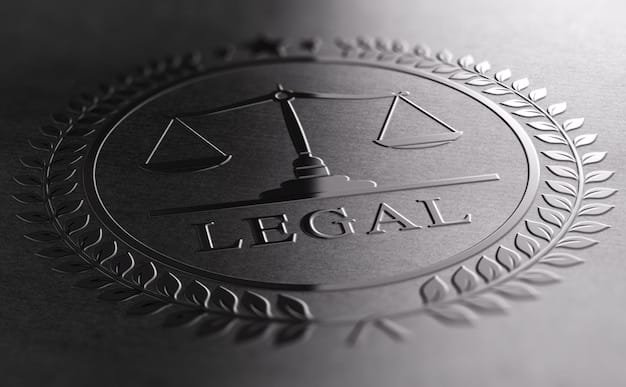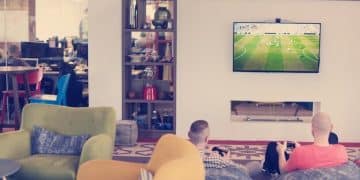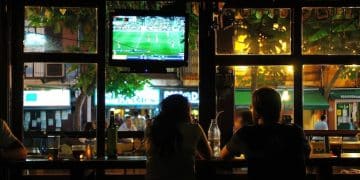MLS Disciplinary Committee: Consistency and Impact Explored

The MLS Disciplinary Committee plays a crucial role in maintaining order, yet questions arise regarding the consistency of its decisions and their subsequent impact on the league.
The realm of Major League Soccer (MLS) is full of thrilling matches, skilled players, and passionate fans. However, like any professional sports league, maintaining order and fairness is paramount. This is where the MLS Disciplinary Committee comes into play, but how consistent are their decisions, and what’s the impact on the game?
Understanding the MLS Disciplinary Committee
The MLS Disciplinary Committee is responsible for maintaining on-field discipline and ensuring player safety within Major League Soccer. It reviews incidents that may have been missed by the match officials and has the power to issue fines and suspensions. Let’s delve deeper into what that entails.
Composition and Authority
The committee consists of former MLS players, coaches, and referees. This diverse expertise is intended to provide a well-rounded assessment of incidents. The MLS Disciplinary Committee is independent of the MLS competition committee .
Scope of Review
The MLS Disciplinary Committee has authority to review match incidents relating to:
- Violent conduct.
- Serious foul play.
- Diving/embellishment.
- Ungentlemanly conduct.
Essentially, the committee steps in where questionable behavior may have been overlooked during a game.
This committee serves as an integral part of maintaining the integrity of MLS. Its role ensures that actions that don’t necessarily get spotted during the match are reviewed thoroughly.

The Decision-Making Process
Understanding how decisions are made is crucial to evaluating the consistency and overall effectiveness of the MLS Disciplinary Committee. The MLS Disciplinary Committee’s decision-making process is elaborate and structured to ensure objectivity and fairness.
Reviewing Evidence
The committee reviews video footage, referee reports, and any other relevant evidence. This evidence is used to determine if further disciplinary action is warranted.
Standards of Proof
Decisions are typically based on a clear and obvious standard. Meaning the incident in question must have been obviously missed or wrongly officiated during the match.
Communication of Decisions
All decisions made by the committee are formally communicated to the involved parties, including the players, clubs, and the public. Transparency is key in building trust and understanding.
The MLS Disciplinary Committee utilizes a process to ensure clarity and that decisions are perceived as unbiased and legitimate.
Consistency Concerns and Criticisms
Despite the structured process, questions regarding consistency often arise. Fans, players, and analysts frequently debate whether similar incidents are treated equally. Let us see possible implications and impacts.
Variations in Interpretation
One of the main sources of inconsistency is the subjective nature of interpreting incidents. What one person considers violent conduct, another might view as an accidental collision. This can lead to different outcomes for seemingly similar situations.
Public Perception
Public perception plays a significant role in shaping opinions about consistency. When high-profile players are involved, decisions are often scrutinized more closely.
Pressure from External Sources
The committee may face pressure from clubs, media outlets, or even the league itself to take certain actions. Maintaining independence in the face of such pressures is essential for ensuring fair outcomes.
Variations in interpretation and external pressures contribute to the perception that the MLS Disciplinary Committee’s decisions are not always consistent. This can undermine confidence in the integrity of the league and foster resentment among those who feel unfairly treated.
Impact on Players and Teams
The decisions made by the MLS Disciplinary Committee have tangible impacts on players and teams. Suspensions can sideline key players during crucial matches. Fines might affect a club’s budget. Let’s explore these dimensions.
Financial Penalties
Fines issued by the committee can range from a few hundred dollars to several thousand, depending on the severity of the incident. It may affect players’ willingness to engage in risky behavior on the field.
Sidelining Key Players
Suspensions can force teams to adjust their strategies, leaving them at a competitive disadvantage when key players are sidelined.
Psychological Effects
The psychological impact of disciplinary actions can extend beyond the immediate consequences. Players who are frequently penalized might develop a reputation, affecting their future interactions on the field.
These disciplinary actions have both short-term and long-term effects on the performance and morale of teams and the behavior of players.
Potential Solutions for Improving Consistency
Addressing the perceived inconsistencies requires thoughtful consideration and proactive measures. There may be ways to approach challenges and improve outcomes.
Enhanced Training and Guidelines
Providing more comprehensive training for committee members can help standardize the interpretation of incidents. Develop clear, detailed guidelines that leave less room for subjective judgment.
Transparency in Decision-Making
Publishing detailed explanations of decisions can help fans and stakeholders understand the reasoning behind each ruling. This practice fosters increased transparency and accountability.
Independent Review Panel
Establishing an independent review panel to oversee the committee’s decisions may add another layer of scrutiny and objectivity.
Implementing these solutions could mitigate the inconsistent application of rules and increase faith in the integrity of the league.

Comparative Analysis with Other Leagues
Examining how other professional soccer leagues handle disciplinary matters can provide valuable insights and benchmarks. Each league has unique challenges and approaches.
English Premier League (EPL)
The EPL has its own disciplinary system, which includes independent regulatory commissions. These commissions handle more severe cases, while standard offenses are dealt with by the Football Association.
La Liga
In La Liga, the disciplinary committee reviews incidents and issues sanctions based on the competition code. The process is often criticized for its lack of transparency.
Bundesliga
Germany’s Bundesliga utilizes a sports court to handle disciplinary matters. This court operates independently and consists of legal professionals and sports experts.
Many soccer leagues have varied ways of handling disciplinary matters. The use of independent commissions, detailed sanction codes, and transparency in decisions can greatly affect the perceived fairness and dependability of these procedures.
Future of MLS Disciplinary Actions
As MLS continues to grow and evolve, adapting the disciplinary process becomes increasingly important. Incorporating technology and refining the existing framework is paramount.
Use of Technology
Implementing video assistant referee (VAR) technology more extensively can provide additional angles and insights when reviewing incidents.
Dynamic Sanctioning
Refining the sanctioning process to account for a player’s history and the specific circumstances of each incident can lead to more equitable outcomes.
Stakeholder Engagement
Engaging with players, coaches, and fans to gather feedback and continuously improve the disciplinary process may enhance buy-in and acceptance of decisions.
The league should embrace technology to refine disciplinary actions and improve transparency.
| Key Point | Brief Description |
|---|---|
| ⚖️ Decision Process | Reviewing evidence, adhering to standards of proof, and communicating decisions. |
| 🤔 Consistency Issues | Variations in interpreting incidents and external sources influencing decisions. |
| 💸 Impact on Teams | Suspensions sideline key players and financial penalties affect budgets. |
| 💡 Solutions | Enhanced training, transparent decision-making, and an independent review panel. |
Frequently Asked Questions
▼
The committee maintains on-field discipline and ensures player safety by reviewing incidents missed by match officials and issuing fines or suspensions.
▼
Subjective interpretation of incidents, public perception, and external pressure all play a role in the perceived lack of consistency in rulings.
▼
Players face financial penalties, suspensions that impact team strategies, and potential psychological effects that might influence future behavior.
▼
Enhanced training for committee members, transparent decision-making, and independent review panels can help promote greater fairness and consistency.
▼
The MLS approach differs from leagues like the EPL, La Liga, and Bundesliga, each with distinct methods involving independent bodies, structured codes, and transparency levels.
Conclusion
The MLS Disciplinary Committee plays a vital role in maintaining order and fairness in the league. While challenges remain in achieving perfect consistency, ongoing efforts to enhance training, increase transparency, and incorporate technology offer hope for a more equitable and trusted disciplinary process in the future.





